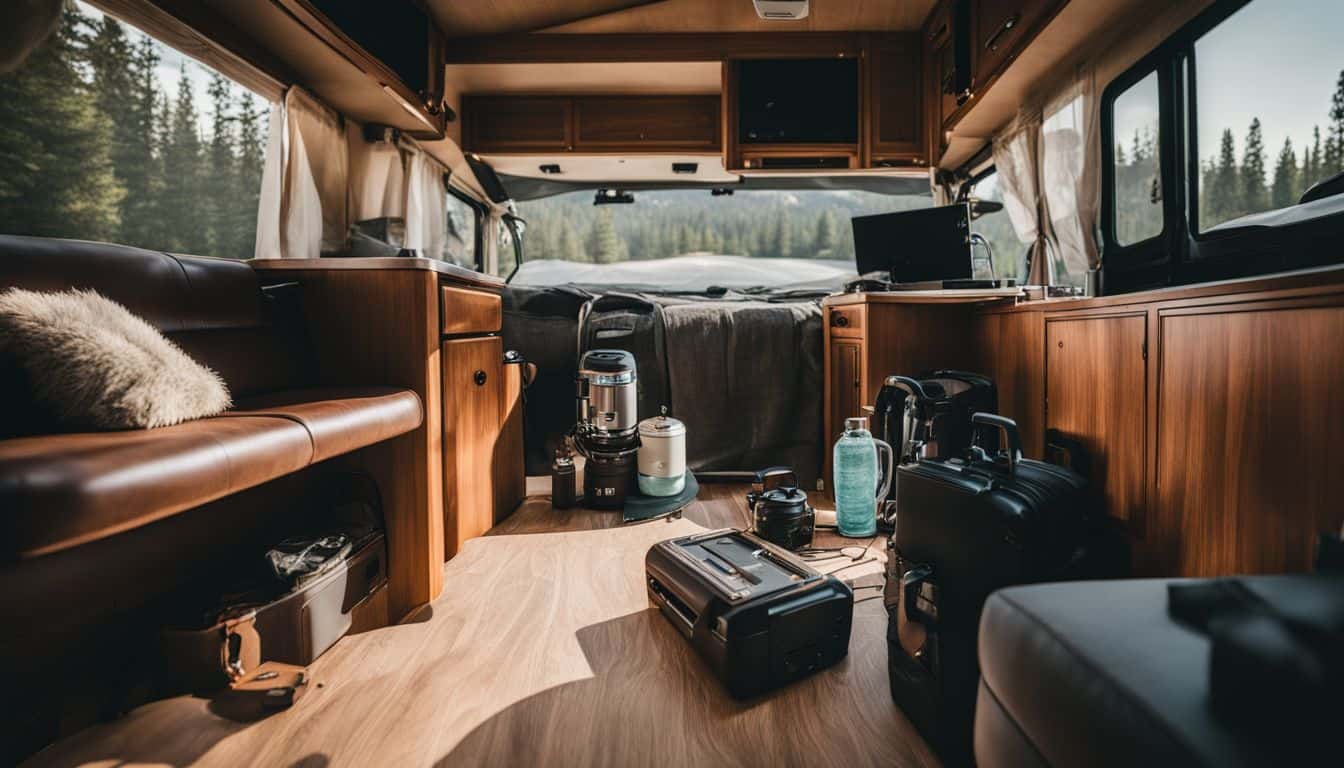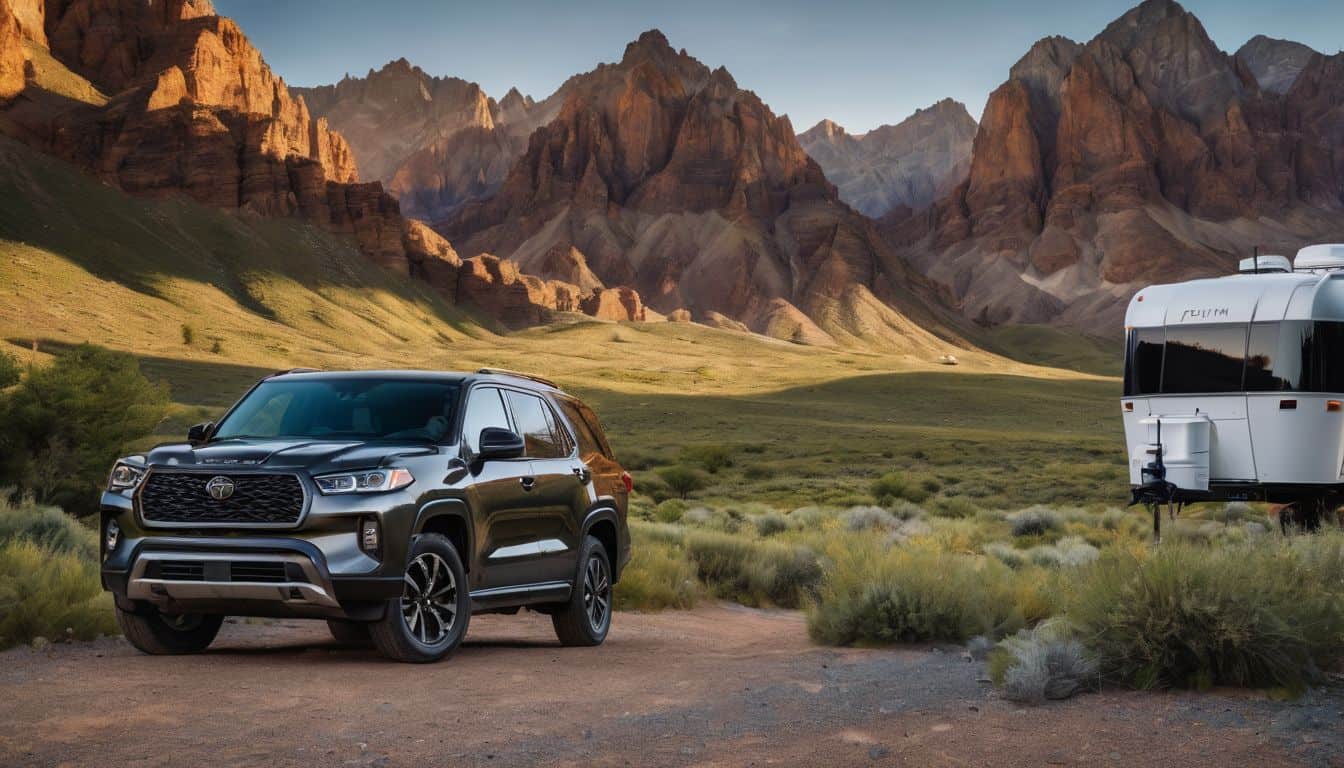As the allure of the open road calls to more and more adventurers, the need for reliable power sources in recreational vehicles (RVs) has never been greater. Portable generators have become an essential companion for RV enthusiasts, providing the freedom to enjoy modern comforts even in the most remote locations. This guide will walk you through everything you need to know about choosing the perfect portable generator for your RV, ensuring your adventures are powered with confidence.
Understanding RV Power Needs
Before considering specific generator models, it’s crucial to understand your RV’s power requirements. This knowledge will help you make an informed decision about which generator will best suit your needs.
Calculating Your Power Requirements
Start by listing all the essential appliances you plan to run in your RV and their respective wattage. Common items include:
- Air conditioner: 1,500-2,000 watts
- Refrigerator: 400-1,000 watts
- Microwave: 1,000-1,500 watts
- TV: 100-300 watts
- Laptop: 50-100 watts
Remember to distinguish between running watts (the power needed to keep an appliance running) and starting watts (the extra power required to start some appliances, especially those with motors). Your generator should be able to handle the highest combined starting wattage of the appliances you’ll use simultaneously.
Types of RV Electrical Systems
RVs typically come with either 30-amp or 50-amp electrical systems. A 30-amp system can handle up to 3,600 watts, while a 50-amp system can manage up to 12,000 watts. Your RV’s system will influence the size and type of generator you’ll need.
Types of Portable Generators for RVs
When it comes to powering your RV, you have several generator types to choose from:
Conventional Generators
These traditional generators are often more affordable and can provide high power output. However, they tend to be louder and less fuel-efficient than newer models.
Inverter Generators
Inverter generators are the go-to choice for many RV owners. They produce clean, stable power that’s safe for sensitive electronics. They’re also typically quieter and more fuel-efficient than conventional generators.
Dual Fuel Generators
These versatile generators can run on either gasoline or propane, offering flexibility in fuel options. This can be particularly advantageous for extended trips or when one fuel type might be more readily available than another.
Key Features to Consider in RV Generators
When shopping for an RV generator, keep these crucial features in mind:
- Power Output: Ensure the generator can meet your calculated power needs.
- Noise Level: Look for generators with low decibel ratings, especially if you frequent campgrounds with noise restrictions.
- Fuel Efficiency and Run Time: Consider how long the generator can run on a single tank of fuel.
- Portability and Size: Factor in the generator’s weight and dimensions to ensure it fits in your RV’s storage compartments.
- Parallel Capability: Some generators can be linked together to double your power output when needed.
For more insights on maximizing your generator’s performance, check out these accessories for portable generator efficiency.
Top Portable Generator Models for RVs
While specific model recommendations can change based on the latest releases and innovations, here are some general categories to consider:
- Best Overall RV Generator: Look for models that balance power output, fuel efficiency, and noise level. Popular brands like Honda and Yamaha often lead in this category.
- Best Budget-Friendly Option: Brands like WEN and Champion offer reliable generators at more affordable prices.
- Most Powerful RV Generator: For larger RVs or those with high power demands, consider generators in the 4,000-7,000 watt range like the duromax xp75000dx.
- Quietest RV Generator: Inverter generators from brands known for their noise reduction technology, such as Honda or Briggs & Stratton, are often the best choices for quiet operation.
- Best Dual Fuel Generator for RVs: Brands like Champion and DuroMax offer popular dual fuel models that allow for flexibility in fuel choice.
Installation and Usage Tips
Proper RV generator installation and usage are crucial for safety and optimal performance. Here are some key points to remember:
- Place the generator at least 20 feet from your RV to prevent carbon monoxide buildup.
- Use a transfer switch or power management system to connect the generator to your RV’s electrical system safely.
- To ensure longevity and reliability, perform regular maintenance, including oil changes and air filter replacements.
For a more detailed explanation of how generators work and basic operational principles, check out the basics of portable generators explained.
Environmental Considerations
As outdoor enthusiasts, we must consider the environmental impact of our power sources. Many modern generators are designed with improved fuel efficiency and reduced emissions. Additionally, solar generator alternatives are becoming increasingly popular for their zero-emission operation, though they may not yet match the power output of traditional generators for all RV applications.
Safety Guidelines for RV Generator Use
Safety should always be your top priority when using a generator. Key safety measures include:
- Never operate a generator indoors or in enclosed spaces.
- Always follow proper fueling procedures, allowing the generator to cool before refueling.
- Use appropriate extension cords rated for outdoor use and the power load of your appliances.
Future Trends in RV Generators
The future of RV generators looks promising, with trends pointing towards:
- Increased fuel efficiency and lower emissions
- Integration with smart RV systems for automated power management
- Hybrid systems combining traditional generators with solar and battery technology

Conclusion
Choosing the right portable generator for your RV is a crucial decision that can significantly enhance your travel experience. By understanding your power needs, considering the key features, and staying informed about the latest models and technologies, you can make a choice that will keep your adventures powered for years to come.
Keep in mind that the perfect generator for your RV is one that meets your specific power requirements while aligning with your travel style and environmental values.

Leave a Reply